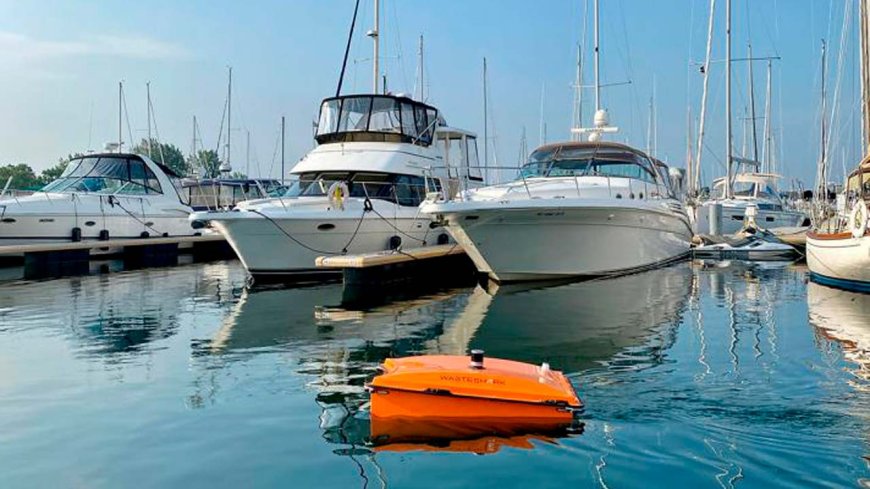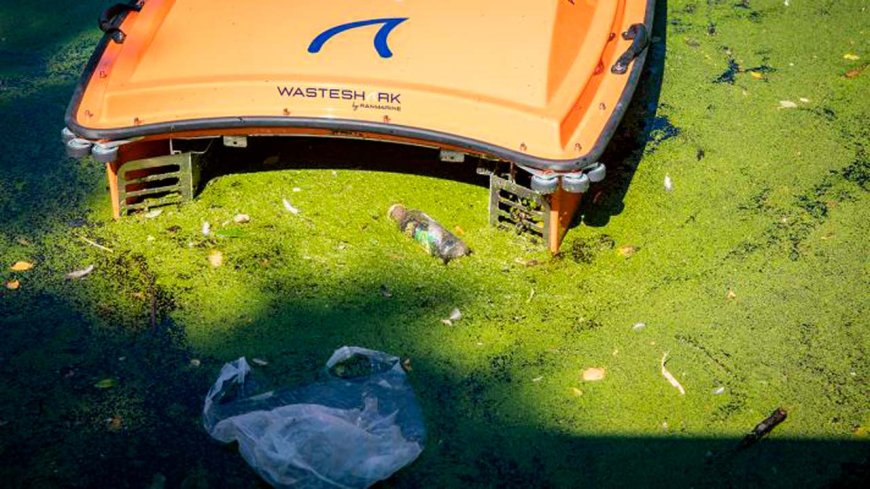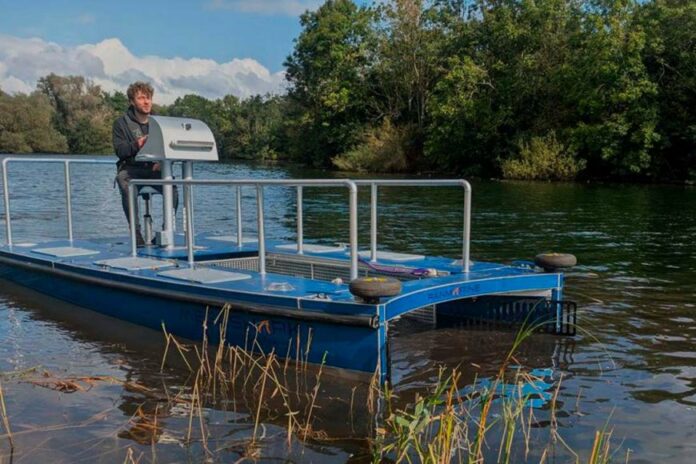Initially, RanMarine focused mainly on tackling floating plastic pollution. The company devised a device that would autonomously navigate the water’s surface and collect plastics, like a robotic vacuum cleaner cleaning a floor.
The team quickly discovered a crucial insight about water pollution priorities: even if removing floating plastic waste remained vital for long-term environmental health, the lack of direct accountability meant that few people were willing to fund its cleanup. But ‘when we expanded our scope to tackle immediate threats like toxic algae blooms – which directly impact local businesses, drinking water, and public health – we found eager customers ready to invest in solutions,’ explains Richard Hardiman, CEO of RanMarine.
Today, RanMarine’s main clients are a mix of marinas and ports, city offices and municipalities, and several commercial clients. This shift revealed the true potential of scaling up their technology.
As the company shifted focus to include algae removal, ‘we suddenly found that there was a lot of government focus on removal’ of harmful algae blooms, particularly in the USA and Europe. Richard says: ‘Our systems could do exactly the same thing, and the need was urgent and had available funding.’
RanMarine has developed two main platforms for their anti-pollution robots, the smaller WasteShark and the newer, larger, MegaShark platform. Both products are commercially available and are purchased depending on the clients’ needs for bigger or smaller units.

The flexibility of RanMarine’s technology became its biggest asset: their Autonomous Surface Vehicles (ASVs) are able to target several pollutants with minimal modifications. This adaptability has proven invaluable, as it has allowed the company to enter different markets and scale up without having to overhaul their entire product line.
Moreover, their ASVs are capable of collecting detailed water quality data while cleaning. By pairing the advanced GPS systems of the ASV and water probes, they were able to measure parameters such as pH levels, temperature, and dissolved oxygen. ‘We suddenly realised that we could build up cloud maps of what is in the water while we’re cleaning it,’ Hardiman says.
After securing private investment, RanMarine is now looking at the public and listed markets as options to raise capital.




